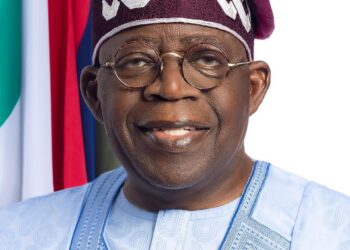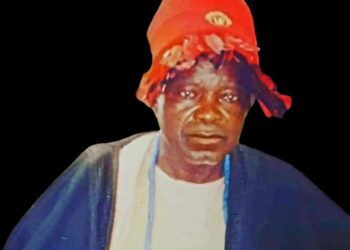Eneojo Herbert
In the political landscape of Nigeria, the notion of a second term for elected officials in the executive branch appears almost preordained. This perspective, eloquently articulated by JS Okutepa SAN, suggests that once a president or governor secures their first term, the pursuit of a second term becomes their primary agenda, often divorced from actual performance or merit. The Nigerian constitution allows for a maximum of two four-year terms for these positions, but the expectation of a second term has become an ingrained part of the political culture.
The entitlement to a second term is not necessarily reflective of the people’s will or democratic choice. Politicians often disregard the electorate’s rights, assuming their continuation in power regardless of public sentiment. This dismissive attitude is compounded by a compromised electoral process where the actual decision-makers are the politicians themselves, who manipulate outcomes to ensure their preferred results. Consequently, those who are announced as winners in elections are almost certain to retain power due to a systemic lack of accountability.
The phrase “go to court” has become synonymous with a lack of faith in the judicial system to rectify electoral injustices. The legal profession, which should serve as a bulwark against such abuses, has often been co-opted to protect and perpetuate electoral malpractices. This undermines the courts’ role as the last hope for the oppressed and disenfranchised. The legal system’s failure to address and punish electoral fraud has significant implications for Nigeria’s peace and stability, as it erodes public trust in democratic institutions.
The commercialization of legal practice has further exacerbated these issues. Resources that could be directed toward creating employment and fostering development are instead squandered on endless electoral litigations. Lawyers, who should be the guardians of justice and social equity, often find themselves defending the very wrongdoers who undermine democratic processes. This misalignment with the core mandate of the legal profession – to uphold justice and social order – perpetuates the cycle of corruption and electoral malpractice.
The persistent suffering of the Nigerian populace can be traced back to these systemic failures. The legal profession’s complicity in these issues is particularly concerning. By shielding those who rig their way into power, lawyers contribute to the instability and disenfranchisement of the masses. The legal profession’s role should be to promote justice and social engineering, ensuring that the governance system operates transparently and equitably.
The audacity of political actors who engage in electoral malpractices with impunity is a testament to the legal profession’s failure to hold them accountable. Lawyers are not merely advocates for their clients; they are also ministers in the temple of justice. Their duty extends beyond individual cases to the broader mandate of ensuring justice and social equity. In advanced societies, lawyers are often at the forefront of promoting integrity and transparency in governance. Nigeria’s legal profession must aspire to this standard, rejecting the complicity in corruption and electoral fraud that has become all too common.
In conclusion, the assumption of an automatic second term in Nigerian politics highlights deep-seated issues within the electoral and legal systems. The legal profession’s failure to uphold justice has significant repercussions for the country’s democratic integrity and social stability. To truly serve the people, Nigerian lawyers must recommit to their core mandate of justice and social equity, ensuring that the political process reflects the will and best interests of the populace.















